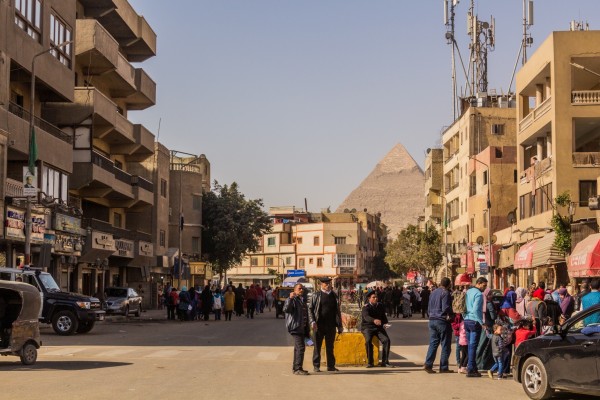IPI today announced its concern at a spate of attacks against the media in Egypt over the last week. Journalists from local media, U.S. public broadcaster PBS and CNN were reportedly attacked on Saturday while covering the aftermath of the demonstration-turned-attack at the Israeli embassy in Cairo on Friday. Meanwhile, on Sunday, as the head of the Supreme Council of the Armed Forces was due to testify at the trial of former President Hosni Mubarak, Al Jazeera Mubasher Misr (“Egypt Live”) was forced off the air, ostensibly because of a missing permit. And a judge banned courtroom reporting of the hearing.
Previously, only TV cameras were banned from the courtroom; now, the trial will be closed to the media and the public. Tantawi’s testimony has been adjourned until 24 September; He told the court he needs to deal with the political aftermath of the Israeli embassy attack, Al Ahram newspaper reported.
On Saturday, while filming near the Israeli embassy, Egyptian producer for PBS Dina Amer was mobbed by people who accused her and her international crew of being Israeli spies, according to a report on CNN.com. When CNN producer Mohamed Fadel Fahmy tried to intervene, the group also attacked him, CNN reported. Eventually Amer was able to escape in a nearby vehicle that was pelted with stones as she and her colleagues drove away. Other journalists, including Egyptian state television correspondent Ahmed Aleiba, told CNN that they were also attacked on Saturday while trying to film at the Israeli embassy.
The next day, the studios of Al Jazeera Egypt Live were raided and equipment was seized, Al Jazeera Mubasher (Al Jazeera Live) Managing Director Ayman Gaballah told IPI. An engineer was arrested and an arrest warrant for a member of a service provider company was issued, Gaballah said. When the Al Jazeera news team moved to a new space in order to resume their broadcasts, they found that their signal had been cut again, Gaballah said.
On Monday, Information Minister Osama Heikal said that Al Jazeera had been closed for working without state permission, Al Masry Al Youm reported on its website. But according to Gaballah, Al Jazeera Egypt Live – a subsidiary of Al Jazeera Live – applied for a license several months ago, but when they enquired as to why it was taking so long, they were told to just “go ahead” until the papers came through. His journalists have been waiting for accreditation for months, he told IPI. “Actually this was a very common approach under the previous regime – they tell you just go ahead, but don’t give you the papers,” Gaballah said, explaining that this gives the government a ready justification to shut down broadcasters that they are unhappy with.
He said that a regular citizen had brought a civil suit against Al Jazeera for “provocation,” which Gaballah again said was a tactic common in the Mubarak era. The court hearing is scheduled for Tuesday.
“The main issue is politics. We have received many indications during the last few weeks that they are not happy with our coverage,” Gaballah said.
According to Gaballah, journalists in post-Mubarak Egypt “supposed the environment would be totally different” and a number of stations were given licenses. But since then, Gaballah said, the space has closed, with some “old guard” journalists from state media now support the Supreme Council of the Armed Forces as they had previously supported Mubarak. According to Gaballah, restrictions on activists and journalists have escalated over the past month.
IPI is concerned at this weekend’s spate of attacks. On one hand, Saturday’s attacks show the dangers that still exist for media workers in Egypt. On the other, the Supreme Council’s desire to control the flow of information about the trial against Mubarak, and their action against the popular Al Jazeera Egypt Live channel, appear to herald a return to the tactics of the previous regime.
“We are deeply concerned at attempts to interrupt the work of Al Jazeera Egypt Live, and other troubling developments in Egypt which appear to threaten press freedom gains,” said IPI Press Freedom Manager Anthony Mills. “Al Jazeera, like all other news organizations, must be able to operate without interference. It is most unfortunate that journalists in Egypt appear to face conditions which they had thought constituted a vestige of past repression. We call on police to investigate all attacks against journalists.” *
* CORRECTION: This post has been unpdated to correct the spelling of Ayman Gaballah’s name.


